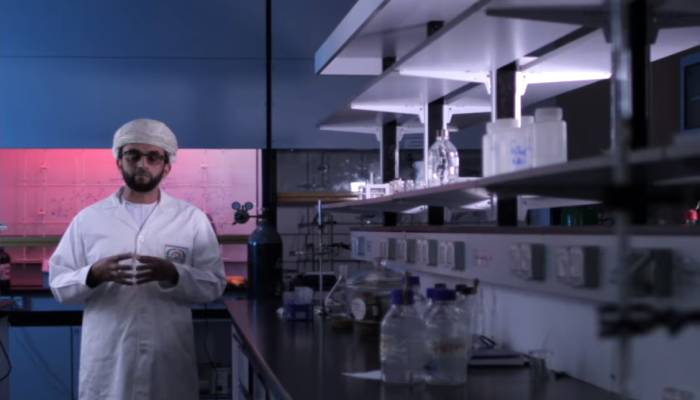
Muscat: Variants of ginger and garlic that grow naturally in the wild in Oman are being used in a study for creating antibiotics from plants that have medicinal properties, and provide an alternative to medicines made from chemicals synthesised in laboratories.
The study is one of many being carried out by the University of Nizwa in partnership with the University of Oxford. A number of native microorganisms and samples taken from marine vegetation will also be studied to analyse and replicate their medicinal and healing capabilities.
At the University of Nizwa, this research is being conducted by the Natural and Medical Sciences Research Centre, which is founded and led by Dr Ahmed Sulaiman Al Harrasi, who also serves as the institution’s vice chancellor for research and graduate studies. “This project with Oxford concerns collection of samples from different parts of the country, in order to identify natural antibiotics,” he explained.
“This has been slowed down due to the pandemic, but the next step will be isolation of these antibiotics, after which we will conduct research with our colleagues at Oxford. We have on our list a group of plants, including many that are edible, such as ginger and garlic, in this case, Omani garlic, as well as others are non-edible but are medicinally important ones,” Al Harrasi went on to say.
“We intend to conduct their genome sequencing in order to understand their biosynthesis, and how plants synthesise these antibiotics naturally. We will then try to mimic these procedures in the laboratory.”
The first positive results from this study are expected in about a year’s time. These plants were chosen because of their high concentration of beta-lactams, compounds that are very effective against bacteria, and are therefore a crucial component in antibiotics and other essential medicines. “This is likely to take time,” explained Al Harrasi. “The protocol we need to follow will need us to observe several steps. Biosynthesis of such compounds will take longer, so I expect this entire process to take two years.”
This is one of many projects the University of Nizwa is running in collaboration with the University of Oxford. Among its most important projects are joint research into looking at the potential of compounds from frankincense being used to create COVID-fighting medicines.
“We have a bank of more than 1,000 compounds – some of them are isolated from different plants of Oman, while others are synthetically modified by us,” Al Harrasi went on to say. “We have studied more than 70 medicinal plants of Oman. This is when it comes to medicinal plants, but the Natural and Medical Sciences Research Centre is also working on various other activities – marine species, micro-organisms, bacteria, fungi, biomedical research, anti-venoms, anti-diabetes and anti-cancer research,” he said.
The university is also looking at other plants that have potential COVID-fighting capabilities, because of the high presence of alkaloids within them. Some of them are very similar to chloroquine, a drug that was first used to treat COVID-19, later withdrawn, and then reintroduced. “The advantages of the alkaloids we have isolated is that they are naturally occurring, their structures are fascinating, and they are very promising,” Al Harrasi added. “We are testing them with our colleagues at Oxford.”